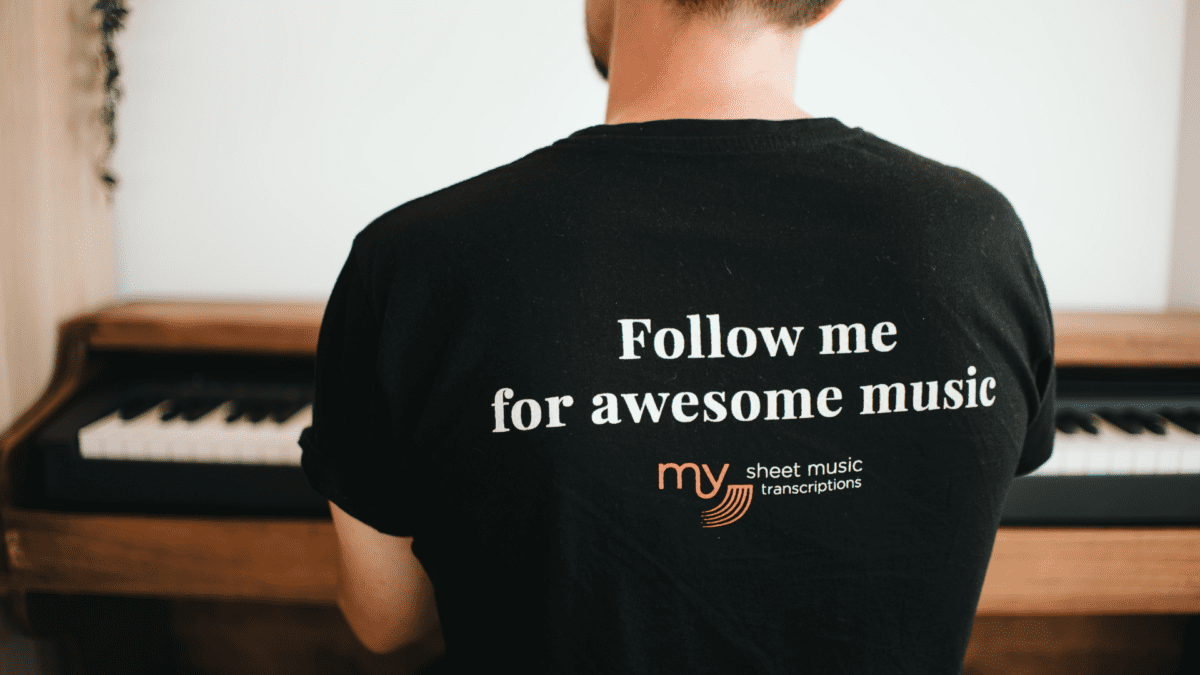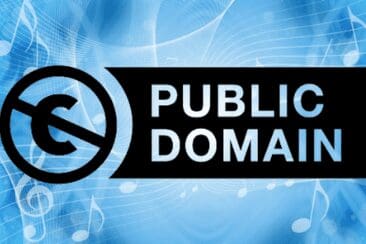First of all, this blog will explore the best tactics used to help music composers that are looking to get on the radar of specific music libraries or a production library, if they are a composer that is fresh out of the box and looking to secure their first signing.
Ask yourself why?
Why would a library with an existing network of trusted composers want to take you on?
Ok, so you think you are good enough, and that may be the case (I’ll assume you cut the mustard!). So how do you stand out from the crowd and get on a library’s radar? It’s a pretty crowded place with tons of music composers chomping at the bit to secure work from a few hundred libraries around the world.
Let’s get to it….
Your Compositions & Portfolio for Music Libraries
I’m going to assume that you don’t need to be told how to write and create good music, this should be a given. But it’s good to understand where your specialities lie. Where do you excel musically? Do you have a niche or are you broad across most genres? I believe it’s best to kill it in one or two genres than be just ok in 6 or 7. Quality over quantity as always!
If you are looking to write new music as part of your approach to a new target library, then it’s important to do your homework.
Some libraries specialise in trailers for example, and some are broad and cover pretty much everything. But where do you feel there is a gap or what do you think is hot right now? Check their music out in detail, how many albums do they have in specific genres, and where’s the shortfall?
Learn The Landscape of Music Libraries
I love the website Tunefind, it’s a great resource to check out what placements are getting good traction across various types of TV shows & films. It’s important for music composers to understand the landscape, as this is something you can use in your approach to your advantage and of course, worth considering when it comes to the type of compositions you will write.
I love people who just say, “Fuck it, I’m just gonna write good music and to hell with any planning!” and I dig that – if you’re naturally gifted then can I suggest you simply crack on 🙂 But I would say that regardless of your talent, it’s about making smart moves to get you to where you want to be, in the shortest time possible.
So, in summary, think about the WHY? What music are you writing and for what use? You may want to look at who you approach first, before considering what to focus on as far as new music goes.
#BONUS TIP
Writing visual content will get you killer results!
Get on YouTube and download some HD adverts, trailers, cues and shows (for your personal use only) and strip out the audio (don’t use it as a reference – come at it with a fresh approach).
It can be very challenging, as the edit could be all over the place and in some cases badly edited (eg. not in sync with the music) but can be a great exercise and learning curve. IMPORTANT: Whilst you need permission to use the content in public, you should be fine to use this privately as part of a portfolio when approaching any music libraries to showcase your work. I will cover the best approach process later in this blog.

It’s also important not to pass off this content as your own placement, especially if used during an approach, you don’t want to give the wrong impression, so make it super clear what you are presenting. The whole point of production music is to complement the visual and help tell the story for the director. The transitions from one scene to another, there’s nothing more powerful than aligning those dots, whilst making the best case for how well your music is presented.
Who Do You Approach?
Get yourself a target list of companies that have caught your eye, maybe you’ve noticed them popping up constantly within the credits of many a TV show. Store the data somewhere, a spreadsheet will do, but I highly recommend Hubspot CRM. It’s free for starters and you can integrate it with Gmail and Outlook, invest some time in their video tutorials, and trust me, once you get the hang of it, you won’t look back.
Now you are set up with your spreadsheet or CRM, you need some target contacts. Most larger music libraries will have a Head of Production, but it’s common that any of the production managers will have their own GO-TO guys as established music composers, so it’s worth noting who does what within any given company. Smaller indies tend to default as the A&R / Head of Production so that would be a good starting point if there isn’t another obvious position in the company that states they are in charge of production and the creative process.
LinkedIn is such a great resource for locating the right person at a company to approach, so focus on your research and plan your approaches carefully.
What’s The Best Way To Approach Music Libraries?
First of all, never add anyone to a mailing list, this is a surefire way of getting yourself flagged and blocked going forward.
If you can, the best approach is to meet them in person. This could be at a conference like the PMA’s conference in LA (Sept each year), or any other networking event, check if there are any good Facebook Groups to join and check the Meet Up platform for network events. Use any of this context in your email approach or follow up after meeting in person.
Here are some tips to follow:
– Make a personal email approach and use as much context as possible (personalise it).
– Your email should be polite, friendly and casual. Think b2b as if you have known them for years – not too formal.
– Address the person by their first name (you will be amazed how many don’t do this).
– Provide them with a simple introduction to yourself (again refer to any context – if, for example, you met them recently or refer to their role in the company). Keep it short and sweet.
– Don’t attach any music files, only send a Playlist Link to showcase your music.
– Provide some info on a highlight to grab their attention (if you don’t have one, that’s fine). Maybe you already have sync placement or you looked at their library and see they only have X in their catalogue of a certain genre and that you specialise in that genre. It’s key to transfer any of your context about the company into your approach, this tells the person receiving that you have gone to the effort to check, which says a lot about you and your professionalism.
Your showcase playlist
This is the most important element of your approach (first impressions count!)
– Personalise the playlist to your target approach (we built a tool for this).
– Add your branding to the playlist (yep, we got you covered).
– Make sure the music and any video content can be streamed within a browser or mobile device. (Yes, our tool does this).
– Use any of the video content you downloaded to present your music visually. (Our playlist tools present the video as well as music – shameless plug – sorry!)
– Make sure you add and include all the relevant metadata to your files, including your content information. (You guessed it, we do that as well).
– Use your CRM tool for your tracking, adding notes and logging information. Hubspot does tracking for you, so you can see if the email is opened and how many times – oh and that’s free as well!
– Don’t send too much music. Give them a clear overview of your skills and styles and make it relevant to your target. If your approach is to a specialist company focusing on advertising and trailers, it goes without saying that just send them your best work in that area.
Should I follow up?
Yes, but give it a couple of weeks and follow up once. Not everyone has time to get back to you due to the volume of submissions, but a polite chaser may grab their attention to ensure they listen to your playlist and give you some feedback.
Other Tactics!
Someone told me once about music composers that were already on a music library’s roster. One year at Christmas one guy decided to get 6 bottles of bubbly and personally write cards for the back office team at the company who helped secure some placements for him during that previous year. He delivered these gifts thanking them for their hard work.
It will come as no surprise that the next year his placements tripled, as the team pitching the music was now fully aware of him and his compositions. Relationships go a very long way, so building relationships with the team is important once you are in the door. This doesn’t mean you just shower them with gifts, but a nice thank you can go a long way.
In the past, we’ve sent Music Supervisors a thank you card and a canvas print of the film they supervised. This was always well received.
Summary
I hope you found this blog of interest and that it helps in furthering your career. Keep focusing on your music and building those relationships. Good luck, and please do share if you know music composers that would like to have a gander.
Best,
Jon Skinner














